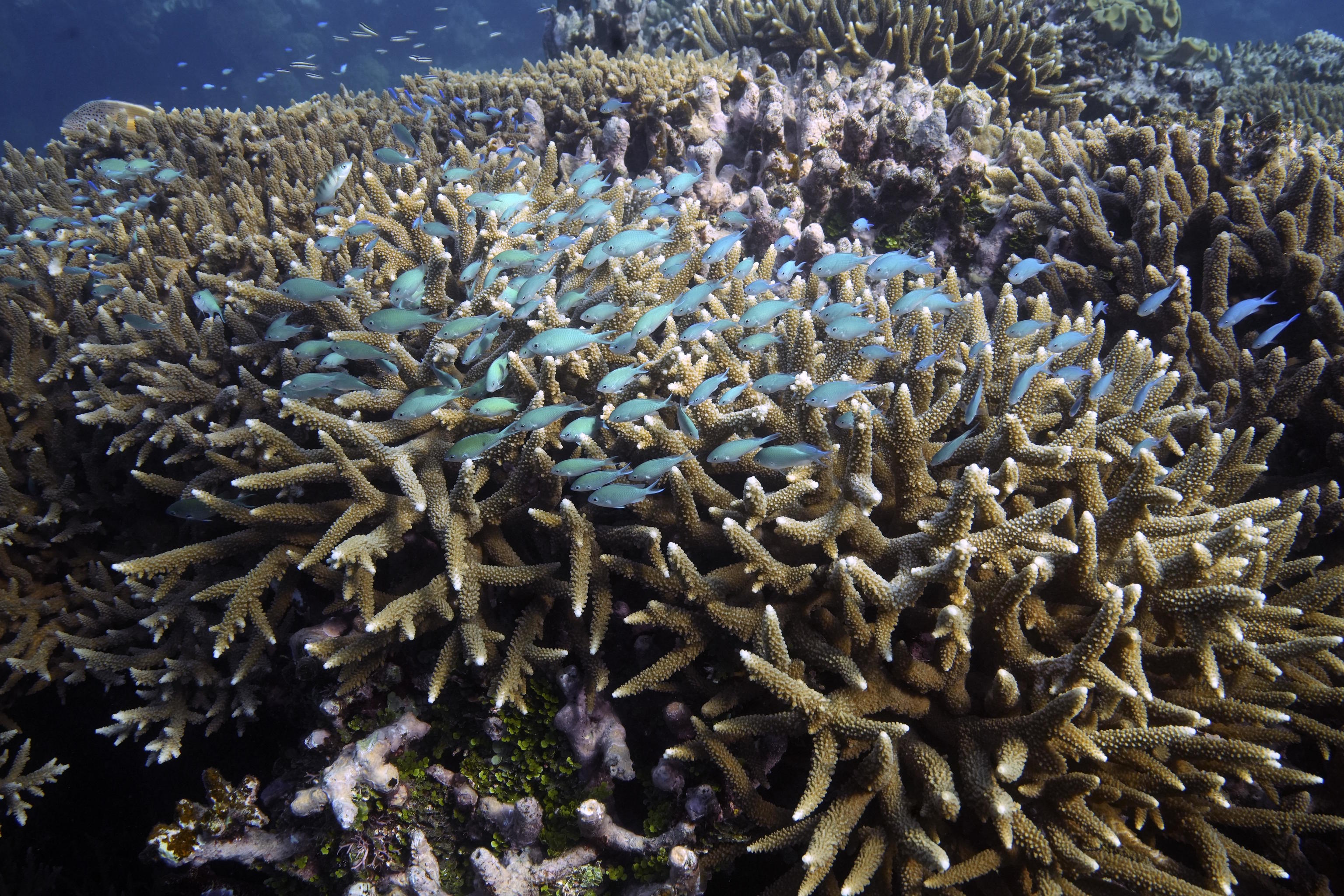The planet has surpassed the first of the nine "tipping points" that can cause a domino effect and worsen the impact of climate change, according to the conclusions of the report Global Tipping Points in which 163 scientists from 23 countries have participated. The mortality of corals in warm waters, with the global bleaching of reefs, is that first tipping point that could be followed by others, such as the regression of the Amazon rainforest or the alteration of the Atlantic currents, estimated as very likely by experts in a scenario of global temperature increase between 1.5 and 2 degrees.
Arctic sea ice, the Greenland ice sheet, the state of boreal forests, permafrost melting (the permanently frozen soil layer in cold regions), the Antarctic ice sheet, and the ice surface in East Antarctica are other "tipping points" that, according to experts, could interact and accelerate global warming.
"The world must face this new reality", warned Tim Lenton, head of the Global Systems Institute at the University of Exeter and co-author of the report. "We are rapidly approaching a multiple tipping point that can transform the planet, with devastating effects on populations and nature."
The "regressive death" of corals in temperate waters can impact the lives of nearly a billion people and a quarter of species, according to the report. "Some sanctuaries may survive and must be protected at all costs", experts warn, while also cautioning about the medium-term impact on ocean biodiversity.
"We also risk losing the Amazon rainforest and ice sheets and altering ocean currents"
Faced with the accumulated evidence over the past year, scientists believe that the coral "tipping point" has been reached by exceeding the threshold of a temperature increase of 1.2 degrees compared to the industrial era. In 2024, the hottest year on record to date, the National Oceanic and Atmospheric Administration (NOAA) issued a global alert for coral bleaching in 54 countries, from the Great Barrier Reef in Australia to reefs in Florida and the Caribbean.
"The fact that corals have surpassed their tipping point is a tragedy for nature and for the people who depend on them for their food and livelihood," said Mike Barrett, scientific advisor at WWF in the UK, also a co-author of the report. "This severe situation should serve as a wake-up call, as we also risk losing the Amazon rainforest and ice sheets and altering ocean currents."
"We are talking about a catastrophic scenario for humanity, and it is vital that the COP30 negotiations recognize the seriousness of the situation," added Mike Barrett. "The solutions are within our reach. What is needed is political courage and leadership to work together."
The Global Tipping Points report warns of the cascade effect that could occur if other "tipping points" already considered "active" are surpassed. The regression of the Amazon could turn the world's largest tropical rainforest into a dry and degraded savanna. The alteration of the North Atlantic currents could intensify extreme weather events in Europe. It is estimated that the melting of the Greenland and West Antarctic ice sheets would cause a sea level rise of up to seven meters. The thawing of permafrost in Arctic regions would release gigatons of methane, a greenhouse gas much more potent than CO2, further contributing to more warming.
As a counterpoint, the report highlights the need to accelerate "positive tipping points," such as the implementation of renewable energies, to curb planetary overheating. The report was released coinciding with the historic global milestone of renewables surpassing coal for electricity production, mainly due to their implementation in China and developing countries.
The president of Brazil's COP30, André Corrêa do Lago, welcomed the report and described it as "a sobering evidence that humanity can still choose to change and evolve towards a safer, more prosperous, and equitable future." Corrêa do Lago committed to incorporating the so-called "positive tipping points" within the 'Global Mutirao' (Collective Action) agenda for mobilization and solutions to the climate crisis, at the summit held precisely at the mouth of the Amazon (Belém).
However, the report's authors express concern about political instability, wars, and humanitarian crises worldwide, as well as decisions that are slowing down climate action and even "dismantling the institutions and tools used to monitor the climate."
